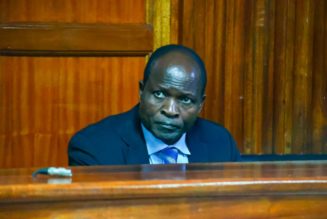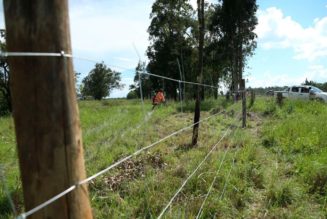Columnists
Dirty games behind pending bills
Friday November 10 2023

Public contracts are among the sectors that have huge pending bills. FILE PHOTO | NMG
The government has appointed a pending bills verification committee to scrutinise the Sh566 billion in the books of both the National and county governments.
I have been reporting and commenting on the work of past pending bills verification teams for a very long time and thought of sharing a story and experience with readers of this column.
I once wrote an opinion piece on the subject of how the judiciary had been compounding the pending bills problem by giving very large awards to contractors.
Courts had been granting awards running into billions of shillings to firms over claims arising from projects that had been abandoned and for which the taxpayer had not received any value.
The following week, I found myself in the office of the Chief Justice who summoned me to read the riot act to me and to prove to me how clueless I was about the circumstances under, which courts had been granting those large awards I had been talking about in my column.
He presented to me a table with five columns: first, the date when the case was filed, second, names of parties and their advocates, third the amount claimed, fourth, the amount of the award and the reasons the judge had advanced for granting the award.
He shouted and uttered words such as this (I paraphrase because it was a long time ago) ‘young man I believe you have been to university. Go and read this table and come back here on Thursday to confess to me how ignorant you had been when pontificating on a subject before doing proper research on the real issues I was humbled. The cheekiness and cockiness that define the character of most of us journalists had been punctured by the Chief Justice.
What was in the document? First, it revealed that several cases where hundreds of millions of shillings had been awarded to contractors were cases where the Office of the Attorney General and the contractors had entered into consent agreements.
There was this case of August 1999 where a road contractor was awarded Sh210 million on the basis of a consent judgment despite the fact that the original demand was a smaller claim of Sh135 million.
But the most interesting was the Sh1.09 billion award in February 2000. The matter did not proceed to a full hearing. The record showed that judgment was entered on an application by the plaintiff to strike out the defence. Both sides were present in court when the government’s defence was struck out. The government did not appeal.
There was a Sh3015 million award to a contractor in 2001 that was given without the government entering a defence.
There were cases where the judgement was entered against the government because the Attorney General neither appeared in court nor filed a defence.
What is my point? It is that former Auditor General Edward Ouko’s committee should not approach the assignment as if it were the usual humdrum audits. This is – first and foremost- an anti-graft investigation. Depending on how the committee conducts its work, this process could reveal malfeasance at the highest level of government.
What we are dealing with here is a game perpetrated by a complex nexus of individuals at the National Treasury, The Ministry of Roads, Public Works, the Judiciary, and the Office of the Attorney General.
I am in the mood to tell stories today. Here is a true story. Sometime in 1990, a contractor entered into some arrangement to put up an annex to the National Treasury building.
It was conceived as a multi-million shilling project whose design included building a tunnel between the National Treasury and the Central Bank of Kenya.
Along the way, the idea was abandoned. As a matter of fact, Herufi House occupies the space to date.
Twelve years later in 2002, the contractor presented the government with a pending bill of Sh2.5 billion. I still have the correspondence in my archives on how the Office of the Attorney General wrote a letter approving the payment.
Architects and quantity surveyors are masters of the game. Today, there are several cases of public corporations with massive pending bills for projects which were abandoned many years ago.
A chief executive of a public firm looking for a project from which to reap kickbacks contrives some lofty project. Within weeks, the board will have approved. It does not matter whether there is a budget because the motive is to open opportunities for negotiating kickbacks with architects, quantity surveyors and structural engineers which he quickly pockets.
Several months later, the CEO is sacked. The stage is set for the consultants to lodge pending bills for a project that did not see the light of day.
Most pending bills are in respect of unbudgeted expenditure. Mr Ouko’s team must declare them to be fake.
The writer is a former managing editor of The East African.









